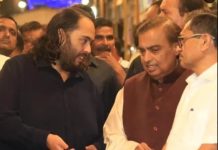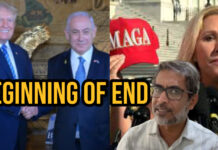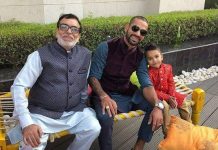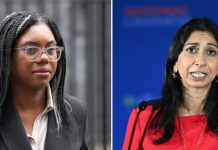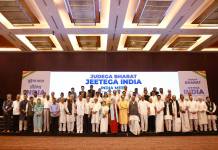Mukesh Adhikary
The JNU row has unmasked ideological fault-lines not just in student politics but also in the Indian media. The news landscape especially TV channels, has always been divided but never before had the differences been so sharp.
The two big faces in the middle of this fight are Arnab Goswami of Times Now and Ravish Kumar of NDTV Hindi.
Goswami, perhaps, finds himself on the wrong side of history in the ongoing
JNU debate, which many say, is a watershed moment for India.
An ideological war is taking place on the streets of the capital and people are divided.
Balanced, unbiased, holistic and in-depth reporting is the need of the hour. But because Goswami believes in
taking a stand, he took a stand, on the basis of what he saw and what
he heard. The issue at hand, however, was a lot more complex.
Goswami found himself aligned with those baying for the blood of students who had allegedly shouted anti-India slogans. The first blow to his stand came when lawyers attacked journalists in the Patiala House Court.
Then came the Bajrang Dal activists outside the JNU campus pledging to kill ‘anti-nationals’. And finally, the
doubts over the credibility of videos that were circulated on social media and aired by few channels including his own.
Goswami, who is an extremely sharp person otherwise, did not anticipate how a simple case of anti-national sloganeering would turn
into a very nuanced debate on the idea of “nationalism”.
His aggressive style of journalism, which works alright in dealing with
corruption and excesses of politicians, was inept in getting its head
around a very delicate topic. Looking at it as a case of black and white was an error.
He declared Kanhaiya Kumar – who may survive the sedition charge – and
Umar Khalid, a bright young man, an ‘anti-national’.
Khalid has now resurfaced on the campus and promised to go after individuals who have carried out a media trial against him and other students.
Goswami has become the news with left-liberal commentators condemning him for irresponsible journalism. They say that his statements have risked the safety of JNU students and stoked tension. Right-wingers happily used his channel’s hashtags to abuse, threaten, malign and defame the JNU students.
Many JNU students call him just another agent in a ‘fascist’ state machinery with no love for dissent.
The JNU row is a rare case which has got the better of Goswami even though he may never admit it.
The anger against Goswami in the media fraternity grew after the attack on journalists in the Patiala House Court.
Many media persons, including Ravish, believed this was a fallout of a highly-charged atmosphere of intolerance.
In an interview during the protest rally of journalists, he criticized debate shows for fanning emotions and expressed worry over the state of affairs. He went a step further on his own show where he switched off the light and gave nearly 40-minute long monologue in what he
said was an attempt to take the viewers into the ‘darkness’ of TV debates where anger reigns.
Those on the left of centre respect Kumar for taking a bold initiative and speaking out against media’s faulty coverage. Kumar, who is also a poet, is on a mission to purge the way TV debates are conducted.
Goswami has led the race of TRPs all these years and has a special dislike for ‘Lutyen’s journalists’. Kumar, who does not originally belong to Delhi, cannot be called a Lutyen’s journalist even though he is broadly accepted as the voice of reason today.He has very passionately
urged the audience to choose carefully what they watch as TV debates can influence their opinion.
It is a good piece of advice, but one that can end up further fueling the ideological divide. Not watching or not reading something inflammatory may be an escapist route in the ongoing battle of
ideologies.. Many in the left liberal side of the debate must be well aware that looking the other way cost them the 2014 elections.
For people who want a mature democracy, the only option is to engage. As much as the liberal side wishes that the right-wingers disappear, it’s not going to happen.
Mukesh Adhikary is an independent journalist and worked with BBC before



